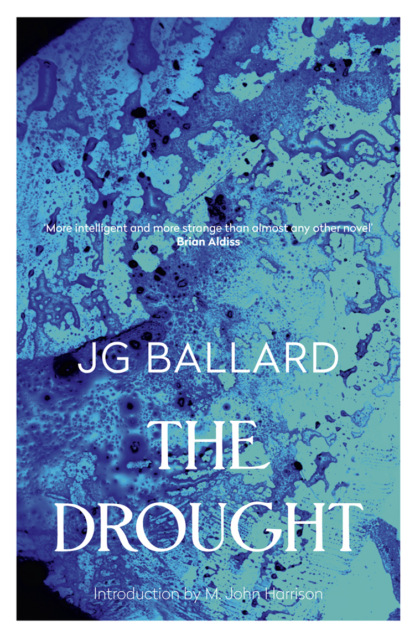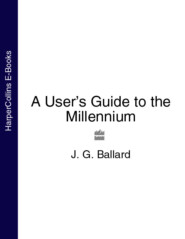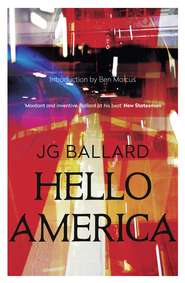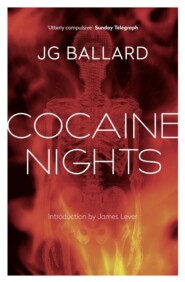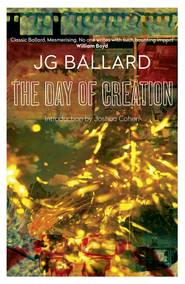По всем вопросам обращайтесь на: info@litportal.ru
(©) 2003-2024.
✖
The Drought
Настройки чтения
Размер шрифта
Высота строк
Поля
He guided her on board the houseboat and went off into the galley. As long as the river flowed Catherine Austen remained one of its community. Besides, there were too many correspondences of character between them, more perhaps than he cared to think. However, all this would soon end. The tank in the roof contained little more than twenty-five gallons, laboriously filled from jerricans he had taken down to the river in his car. The public water supplies, a pathetic trickle all summer, had finally been discontinued three weeks earlier, and since then he had been unable to make good the constant drain on the tank.
He half-filled a can of water and carried it into the cabin. Catherine Austen was strolling up and down, inspecting his books and curios.
‘You're well prepared, doctor. I see you have your own little world here. Everything outside must seem very remote.’ She took the can and turned to leave. ‘I'll give it back to you. I'm sure you'll need it.’
Ransom caught her elbow. The difficulties of coming to terms with the young woman warned him of all the unseen hazards of the changing landscape. ‘Forget the water. Catherine, I'd hate you to think I'm smug, of all things. If I am well prepared it's just that …’ he searched for a phrase ‘… I've always thought of the whole of life as a kind of disaster area.’
She watched him with a critical eye. ‘Perhaps, but I think you've missed my point, doctor.’
She walked up the bank, and without looking back disappeared towards her villa.
Below the bridge, in the shadow of the pylons, the trailer families sat around a huge garbage fire, their faces blazing like voodoo cultists in the serpentine flames. Down on the water the solitary figure of Quilter watched them from his coracle, leaning on his pole among the dead fish like a water-borne shepherd's boy resting with his sleeping flock. As Ransom returned to the houseboat Quilter bent down and scooped a handful of the brackish water to his mouth, drank quickly and then punted himself away below the bridge with an awkward grace.
4 The Dying Swan (#ulink_c7a9e415-70a9-5f3d-bf21-5f07dcfb3612)
‘Doctor! Quickly!’ Half an hour later, as Ransom was fastening the galley fan-lights, there was a shout outside. A long wooden skiff, propelled by a tall, sunburnt youth, naked except for his faded cotton shorts, bumped against the houseboat, materializing like a spectre out of the canopy of reflected light that lay over the black mirror of the water.
Ransom went up on deck and found the youth, Philip Jordan, fastening the skiff fore and aft to the rail.
‘What's this, Philip?’ Ransom peered down into the narrow craft, where a large nest of wet mattress flock, covered with oil and cotton waste, lay in a parcel of damp newspaper.
Suddenly a snake-like head lifted from the nest and wavered at Ransom. Startled, he shouted: ‘Tip it back into the water! What is it – an eel?’
‘A swan, doctor!’ Philip Jordan crouched down in the stern of the skiff, smoothing the clotted head and neck feathers. ‘It's suffocating in the oil.’ He looked up at Ransom, a hint of embarrassment in his wild eyes. ‘I caught it out on the dunes and took it down to the river. I was trying to make it swim. Can you save it?’
Ransom stepped over the rail into the skiff. He searched the bird's mouth and eyes. Too exhausted to move, the swan stared up at him with its glazed orbs. The oil had matted the feathers together, and choked its mouth and respiratory passages.
Ransom stood up, shaking his head. ‘Spread its wings out. I'll get some solvent from the cabin.’
‘Right, doctor!’
Philip Jordan, foster-child of the river and its last presiding Ariel, lifted the bird in his arms and unfurled its wings, letting their tips fall into the water. Ransom had known him for several years, and had watched him grow from a child of twelve into a tall, long-boned youth, with the quick eyes and nervous grace of an aboriginal.
Five years earlier, when Ransom had spent his first weekends out on the lake, rebuilding his world from scratch from the materials of water, wind and sunlight, Philip Jordan had been the only person he could incorporate into his new continuum. One night, as he sat reading under a lantern in the well of his craft moored to a derelict quay among the marshes, he heard a splash of water and saw a slim brown-faced boy paddle a home-made dinghy out of the darkness. Leaving a few feet of open water between them, the boy made no reply to Ransom's questions, but watched the doctor with his wide eyes. He wore a faded khaki shirt and trousers, the remnants of an old Scout uniform. To Ransom he was part waif and part water-elf.
Ransom resumed his reading and the boy moved twenty yards away, his blade slipping in the liquid silver of the night-water. Finally he came in again and produced from between his feet a small brown owl. Raising it in his hands, he had shown it to Ransom – or more probably, the doctor guessed, had shown Ransom to the owl, the tutelary deity of his water-world – and then vanished among the reeds.
He appeared again after a lapse of one or two nights, and this time accepted the remains of a cold chicken from Ransom. At last he replied to some of Ransom's questions, answering only those about the owl, the river and his boat. Ransom assumed he came from one of the families living in a colony of beached houseboats farther into the marshes.
He saw the boy on and off over the next year. He would share a meal with Ransom in the well of the boat, and help him sail the craft back to the entrance to the river. Here he always left Ransom, reluctant to leave the open water of the lake. Friend of the water-birds, he was able to tame swans and wild geese. He still referred to himself only by his surname, the first clue that he had escaped from some institution and he was living wild. His strange changes of costume – he would appear in a man's overcoat or pair of old shoes three sizes too big – confirmed this. During the winters he was often close to starvation, going off alone to eat the food Ransom gave him.
All these times Ransom wondered whether to report him to the police, frightened that after a cold week-end he might find the boy's body following the fish downstream. But something dissuaded him: partly his own increasing influence over Philip – he lent him paper and crayons, and helped him to read – and partly his fascination at the spectacle of this starveling of the river-ways creating his own world out of the scraps and refuse of the twentieth century, the scavenger for every nail and fish-hook turning into a wily young Ulysses of the waterfront.
As Ransom collected the turpentine and cotton waste from a locker in the galley, he reminded himself that selfishness in not reporting the youth years earlier might make Philip now pay a terrible price. The river was no more a natural environment than a handful of pebbles and water-weed in an aquarium, and its extinction would leave Philip Jordan with a repertory of skills as useful as those of a stranded fish. Philip was not a thief — but from where had come those mysterious ‘gifts’: clasp knives, a cigarette lighter, even an old gold-plated watch?
‘Come on, doctor!’ Philip Jordan beckoned him over the rail. The swan lay with wings outstretched, its plumage slick with oil.
‘Easy, Philip.’ Ransom began to clean the swan's bill. The bird roused faintly in response to the manual pressure, but it seemed nearly dead, smothered in the great weight of oil.
Philip Jordan shouted: ‘Leave it, doctor! I'll take it down to the galley and soak off the oil.’ He lifted the bird in his arms, struggling with its flopping head, but Ransom held his shoulder. ‘What's the matter?’
‘Philip, I can't spare the water. The bird is almost dead.’
‘That's wrong, doctor!’ Philip steadied himself in the skiff, the bird sliding in a sprawl out of his oil-covered arms. ‘I know swans – they come back.’ He released the bird and let it subside between his feet. ‘Look, all I need is one bucket and some soap.’
Involuntarily, Ransom glanced up at Catherine Austen's villa. In addition to the water tank in the roof of the houseboat, there was a second tank containing two hundred gallons in the pontoon. Some inner caution had prevented him from revealing its existence to Philip Jordan.
Ransom gestured at the sky, knowing that he would have to make allowance for Philip in his plans for departure. Below his feet the dead birds and water-fowl drifted past. ‘The drought may well go on for another two or three months. There's got to be an order of priorities.’
‘There is, doctor!’ His face stiff, Philip Jordan seized his aft line and jerked it loose. ‘All right, I'll find water. The river still has plenty in it.’
‘Philip, Don't blame yourself.’
Ransom watched him as he paddled off, his strong arms sweeping the skiff across the river. Standing in the stern with his legs astride, his back bending, the outstretched wings of the dying bird dipping into the water from the bows, he reminded Ransom of a land-locked mariner and his stricken albatross, deserted by the sea.
5 The Coming of the Desert (#ulink_c88da199-0bb1-561c-98da-bd24ea8d0aca)
In the sunlight the white carcasses of the fish hung from their hooks in drying sheds, rotating in the warm air. The boat-houses were deserted, and the untended fishing craft were beached side by side in the shallows, their nets lying across the dust. Below the last of the wharfs two or three tons of smaller fish had been tipped out on to the bank, and the slope was covered with the silver bodies.
Turning his face from the stench, Ransom looked up at the quay. In the shadows at the back of the boat-house two of the fishermen watched him, their eyes hidden below the peaks of their caps. The other fishermen had gone, but this pair seemed content to sit there unmovingly, separated from the draining river by the dusty boat across their knees, like two widows with a coffin.
Ransom stepped through the fish, his feet sliding on their jellied skins. Fifty yards ahead he found an old dinghy on the bank that would save him the effort of crossing the motor-bridge. Pushing off, he reached the opposite shore and then retraced his steps along the bank towards Hamilton.
Across the surface of the lake the pools of evaporating water stirred in the sunlight. Along its southern margins, where the open water had given way before the drought to the creeks and marshes of Philip Jordan's water-world, the channels of damper mud wound among the white beaches. The tall columns and gantries of an experimental distillation unit operated by the municipal authorities rose above the dunes. At intervals along the shore the dark plumes of reed fires lifted into the sky from the deserted settlements, like the calligraphic signals of a primitive desert folk.
At the outskirts of the town Ransom climbed the bank and left the river, crossing an empty waterfront garden to the road behind. Unwashed by the rain, the streets were covered with dust and scraps of paper, the pavement strewn with garbage. Tarpaulins had been draped over the swimming pools, and the tattered squares lay about on the ground like ruined tents. The trim lawns shaded by willows and plane trees, the avenues of miniature palms and rhododendrons had vanished, leaving a clutter of ramshackle gardens. Most of Ransom's neighbours had joined the exodus to the coast. Already Hamilton was a desert town, built on an isthmus of sand between a drained lake and a forgotten river, sustained by a few meagre water-holes.
Two or three months beforehand many of the residents had built wooden towers in their gardens, some of them thirty or forty feet high, equipped with small observation platforms to give them an uninterrupted view of the southern horizon. From this quadrant alone were any clouds expected to appear, generated from moisture evaporated off the surface of the sea.
Halfway down Columbia Drive, as he looked up at the deserted towers, a passing car swerved in front of Ransom, forcing him on to the pavement. It stopped twenty yards ahead.
‘Ransom, is that you? Do you want a lift?’
Ransom crossed the road, recognizing the grey-haired man in a clerical collar – the Reverend Howard Johnstone, minister of the Presbyterian Church at Hamilton.
Johnstone opened the door and moved a shot-gun along the seat, peering at Ransom with a sharp eye.
‘I nearly ran you down,’ he told Ransom, beckoning him to shut the door before he had seated himself. ‘Why the devil are you wearing that beard? There's nothing to hide from.’
‘Of course not, Howard,’ Ransom agreed. ‘It's purely penitential. Actually, I thought it suited me.’
‘It doesn't. Let me assure you of that.’
A man of vigorous and stubborn temper, the Reverend Johnstone was one of those muscular clerics who intimidate their congregations not so much by the prospect of divine justice at some future date but by the threat of immediate physical retribution in the here and now. Well over six feet tall, his strong head topped by a fierce crown of grey hair, he towered over his parishioners from his pulpit, eyeing each of them in their pews like a bad-tempered headmaster obliged to take a junior form for one day and determined to inflict the maximum of benefit upon them. His long twisted jaw gave all his actions an air of unpredictability, but during the previous months he had become almost the last pillar of the lakeside community. Ransom found his bellicose manner hard to take – something about the suspicious eyes and lack of charity made him doubtful of the minister's motives – but none the less he was glad to see him. At Johnstone's initiative a number of artesian wells had been drilled and a local militia recruited, ostensibly to guard the church and property of his parishioners, but in fact to keep out the transients moving along the highway to the south.
Recently a curious streak had emerged in Johnstone's character. He had developed a fierce moral contempt for those who had given up the fight against the drought and retreated to the coast. In a series of fighting sermons preached during the last three or four Sundays he had warned his listeners of the offence they would be committing by opting out of the struggle against the elements. By a strange logic he seemed to believe that the battle against the drought, like that against evil itself, was the local responsibility of every community and private individual throughout the land, and that a strong element of rivalry was to be encouraged between the contestants, brother set against brother, in order to keep the battle joined.
Notwithstanding all this, most of his flock had deserted him, but Johnstone stayed on in his embattled church, preaching his sermons to a congregation of barely half a dozen people.





